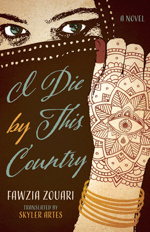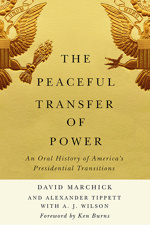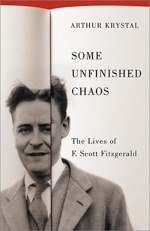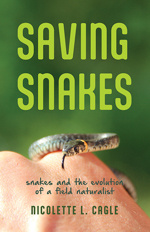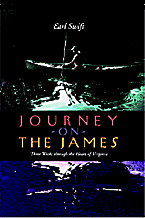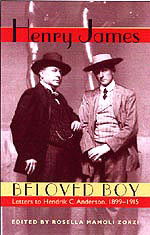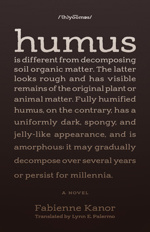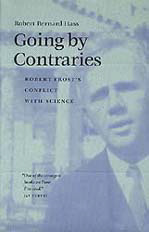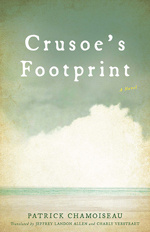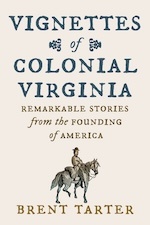UVA Press Staff Share Their Must-Read Books for Summer
UVA Press Staff Share Their Must-Read Books for Summer
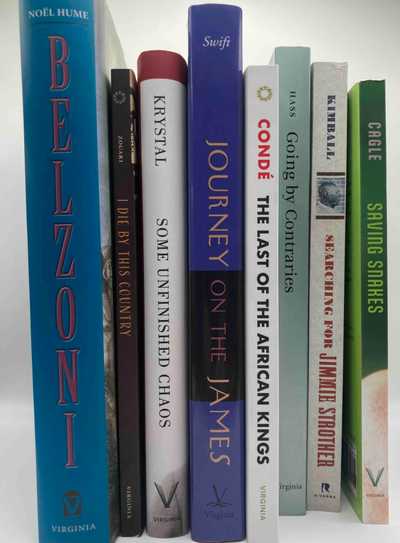
We asked UVA Press staff what they're reading this summer. Check out the list below, and take 40% off any of the chosen books using promo code <10SUMMER25> until September 22!
Beth Colón:
I Die By This Country by Fawzia Zouari, translated by Skyler Artes (CARAF Books, 2018). I've been going through the CARAF backlist since I started the job in 2023. I'm looking forward to reading this novel because it's based on a true story, but it also deals with a lot of the central themes that recur throughout the books in the series: colonialism and post-colonialism, immigration and exile, racism and sexism, power and resistance, nationalism and identity. I've learned so much and have expanded my own understanding of being a colonial subject through reading CARAF Books.
And here's one non-UVA book I recently read and enjoyed that I think is perfect for summer: The Amalfi Curse (2025) by Sarah Penner. I love historical fiction told in two timelines, which Sarah is so great at doing; I loved her first book, The Lost Apothecary (2021). This one is set in Positano and involves an Italian sea witch coven, piracy and treasures, deep-sea diving in shipwrecks, parent loss and grief, some magical realism, and some romance, of course. Thrilling beach read!
Eric Brandt:
Some Unfinished Chaos: The Lives of F. Scott Fitzgerald by Arthur Krystal (in honor of the 100th anniversary of the publication of the Great Gatsby).
Mark Mones:
Belzoni: The Giant Archaeologists Love to Hate by Ivor Noël Hume
Written by one of the formative figures in Virginia archaeology, this lively biography of a fascinating and controversial character whose work prefigures the dawn of Egyptology is one of the most rollicking reads on our backlist (and the book for which we’re still awaiting a full-blown Hollywood treatment—calling Wes Anderson). In Noël Hume—who followed a similarly circuitous path from mudlarking on the Thames to running Colonial Williamsburg’s Department of Archaeology (recounted in his equally engaging autobiography, A Passion for the Past: The Odyssey of a Transatlantic Archaeologist), Belzoni found his ideal chronicler.
Henry James, Beloved Boy: Letters to Hendrik C. Andersen, 1899–1915, edited by Rosella Mamoli Zorzi, with an introduction by Millicent Bell
A compelling edition of Henry James’s collected correspondence with Hendrik Anderson, a twenty-seven-year-old expatriate Norwegian-American sculptor living in Italy with whom the fifty-six-year-old novelist shared a sixteen-year epistolary friendship, replete with musings about art and life in uncommonly vunerable and personal terms. As The Bloomsbury Review noted, “These letters provide yet another fascinating facet of one of America's most significant and enigmatic writers. This edition is the most complete of James' letters to Andersen, and both the notes and the introduction are excellent without being intrusive.”
Fernando Campos:
Monticello in Mind: Fifty Contemporary Poems on Jefferson
This collection of poems that engage with Thomas Jefferson and Monticello showcases how poetry often allows for a more personally relevant understanding of the past than the discipline of history itself, since there's no obligation to follow a standard of intended objectivity. The poets in this collection range widely in how they engage with Jefferson and Monticello, keeping the import of this history relevant in our own time and consciousness.
Going by Contraries: Robert Frost's Conflict with Science
I'm generally fond of questioning the reach of empiricism, so this study on how Robert Frost's poetic practice accomplishes that is a welcome read. Poets are not often known for being scientific, though poetry has much to say beyond science.
Ellen Satrom:
I'm catching up on books that I hadn't yet read in our CARAF series (Caribbean and African Literature Translated from French). Two recent favorites are Humus by Fabienne Kanor (beautiful, tightly rendered narratives from the perspectives of fourteen enslaved women who in 1774 leaped together from a ship's deck into the sea rather than endure slavery) and Crusoe's Footprint by Patrick Chamoiseau (a brilliant revisioning of the Robinson Crusoe story). Up next are Popa Singer (René Depestre's semiautobiographical work set in the time of Papa Doc Duvalier), Désirée Congo by Évelyne Trouillot (set in the final years of the Haitian Revolution), and Last of the African Kings by Maryse Conde (author of an all-time favorite from that series, I, Tituba, Black Witch of Salem).
Beyond our own list: Having recently read and loved the Hmong writer Kao Kalia Yang's lyrical family memoir The Latehomecomer, I'm looking forward to the recently published Where Rivers Part, which focuses on her mother's life. And I have a fat biography waiting of Dietrich Bonhoeffer by Eric Metaxas that my mother just reread and handed my way. Oh, and Daniel Mendelsohn's new translation of The Odyssey!
Andy Edwards:
Coltrane: The Story of a Sound (FSG, 2007) by Ben Ratliff
I love a good jazz biography, particularly one that demands frequent breaks to listen to historic recordings. Last summer I geeked out after reading James Kaplan's 3 Shades of Blue and created comprehensive, chronological playlists of every recording session that John Coltrane ever participated in—or, at least, all those available on the Tidal streaming platform, which comes to well over 100 hours. This summer, then, I plan to go through Ben Ratliff's account of Coltrane’s musical journey—one that pays detailed attention to the music itself, rather than focusing on biographical narrative. Note: If any religion scholars have a book proposal on Coltrane—particularly his later material—American Spirituality series editor Matt Hedstrom and I would be interested to talk with you!
Journey on the James: Three Weeks through the Heart of Virginia (2001) by Earl Swift
Summers always rekindle my passion for outdoor treks, whether backpacking, canoeing, or flyfishing. In the coming weeks, then, I look forward to reading this classic from UVAP's backlist. While this New York Times bestselling author has since gone on to write popular hits like Chesapeake Requiem (which followed his 2007 UVAP publication on the same subject, The Tangierman's Lament), his first foray in book publishing chronicled his voyage along the James River from its source on a Highland County farm all the way to the Chesapeake. To be sure, outdoor literature reads differently than most of our publications, but the back cover boasts such a litany of adulatory blurbs that I know I’ll enjoy the ride!
Nadine Zimmerli:
Saving Snakes: Snakes and the Evolution of a Field Naturalist by Nicolette Cagle
I've encountered a snake or two along the Virginia Capital Trail recently, piquing my curiosity, and I love books in which authors relay scientific information through their own experiences, so this book is right up my alley. I am not fearful of snakes, but neither am I enamored of them — but maybe I will be once I finish this neat little book!
12 000 år med norsk historie: arven fra jegere, krigere og vikinger by Wolfgang Wee and Sturla Ellingvåg
I am very slowly making my way through this fascinating book, practicing my Norwegian. I love both its premise and its format. The premise is that testing of ancient DNA paired with insights gleaned from archaeology now makes possible reconstructing population movements thousands, even tens of thousands of years ago. In addition, this book is a podcast in print form. The Q&A between Wee and Ellingvåg on the page means that I can digest one or two paragraphs at a time and don't have to try to comprehend pages upon pages in a language I'm still learning. Plus, here at UVA Press, we also published a book based on a podcast in David Marchick's The Peaceful Transfer of Power: An Oral History of America’s Presidential Transitions, and I was curious to see how another press tackled this conversion, to think through whether we could do more in this format.
Jason Coleman:
This summer I’ll start with Katie Kitamura’s Audition. I’ve read her last two novels and always look forward to that hyper-rational voice tying to describe an irrational world. Top-shelf disorientation.
From UVA Press, I’ll recommend Gregg Kimball’s Searching for Jimmie Strother: A Tale of Music, Murder, and Memory, which takes its vast pile of impeccable research and turns it into a compelling narrative and a vivid re-creation of a world you didn’t even know existed.
QuickLinks
Find a BookFor Our AuthorsRights and PermissionsRotunda Digital ImprintSupport UVA PressCareer OpportunitiesWalker Cowen Memorial PrizePrivacy PolicyContact Us
- P.O. Box 400318 (Postal)
- Charlottesville, VA 22904-4318
- 210 Sprigg Lane (Courier)
- Charlottesville, VA 22903-2417
- 434 924-3468 (main)
- 1-800-831-3406 (toll-free)
- 434 982-2655 (fax)

the future
of publishing
Affiliates



